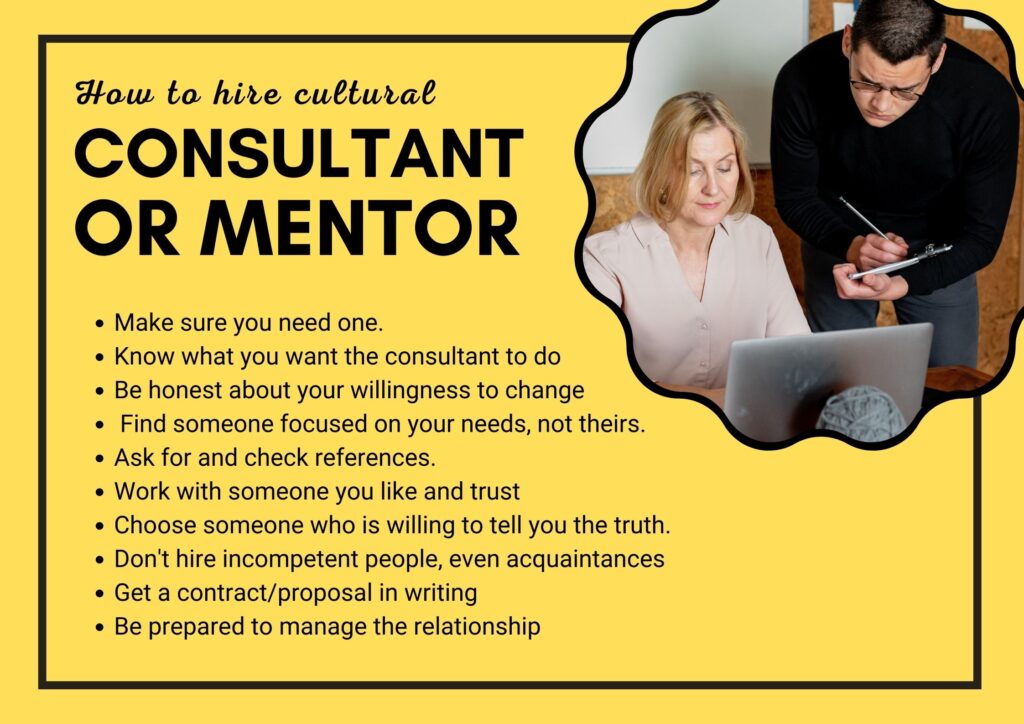Improve Workplace Culture With A Strong Mentoring Program
Employees will feel more comfortable and productive if their needs match the requirements of the organization. The extrinsic rewards of salary and benefits might be enough to get top talent to the organization, but it will not be enough to retain employees or to bring out their best efforts.
Moreover, they will promote their full potential if what they do brings concrete value for a business. It’s the feeling of having done something worthwhile and it’s tied to their personal and professional growth.
A win-for-all
Mentoring benefits an organization by increasing employee satisfaction, retention, assisting the mentee’s personal and professional development. Mentors, on the other hand, appear to benefit just as much such as: expanding relationships, learning skills that you don’t know, learning how to share and listen to people
Types of mentoring
The mentoring program you choose should be tailored to your organization’s specific needs and goals. There are three broad areas of mentoring:
- Peer mentors – often the best approach for a new employee, this is someone to introduce a mentee to organizational culture and show them the ropes.
- Career mentors – where the mentor also serves as a coach, and as a kind of internal advocate who helps the mentee meet their professional goals.
- Life mentor – a sounding board who can help us integrate our professional development with our larger life journey.
It should be noted that these three types of mentoring are not mutually exclusive and that the same mentor can be of assistance in all three areas. While new employees are probably best off with a mentor within the organization, executives and CEOs may benefit from an outside voice—either a colleague facing comparable challenges in another organization or an executive coach.
Keys to a successful mentoring program
First and foremost, mentoring must be personal and not bureaucratic. If the program comes across as another obligatory HR program, mentees and mentors are likely to resent it or merely go through the motions.
Maybe you don’t know, pairing an employee with the right mentor is the trickiest aspect of mentoring. To handle this difficulty, you can provide participants some input or choice—for example, suggesting three possible mentors and then letting the employee choose.
10 Tips to Guide You to Hire a Culture Consultant or Mentor
Here are 10 tips for hiring a consultant, coach, or other workplace/career consultant:
1. Make sure you need one.
Before deciding to find a mentor, let’s make sure that you need this mentor to . And you also need to check with your in-house talent first if they can solve that problem? If they can, let them handle it. You might be surprised what kind of solutions your staff can come up with!
2. Know what you want the consultant to do.
Please define your demand clearly to choose the most suitable consultant. Different consultants offer different types of expertise and guidance. So, are you looking for an expert to tell you exactly what to do? Another pair of hands to do exactly what you tell them? Or a collaborator to partner with you to explore potential and solutions?
3. Be honest about your willingness to change.
Clarify your goals. What are you trying to accomplish? Are you really willing to do the changes necessary? A consultant’s work is only useful if you do the work, too.
4. Find someone focused on your needs, not theirs.
Many consultants get stuck in a certain model or “intervention” and try to make problems fit their preconceived solutions. You need to make sure your consultant custom designs a solution just for you.
If they are a good coach/consultant, in the first meeting, they will ask questions about your business, your requirements, and your expected outcomes instead ofstories of past contracts and clients.
5. Ask for and check references.
Make sure you consultant is experienced and credentialed. And then ask those references for other references.
6. Work with someone you like and trust
Personality fit is essential. Find somebody you like, trust, and respect to work together. Therefore, the process of communicating becomes easier.

When all else is equal, it’s easier to work with someone you like or whose personality fits the company’s culture. Make sure you find someone who really listens to you.
7. Choose someone who is willing to tell you the truth.
A good coach, consultant or mentor is someone who should always honestly share with you what they know, what they see, and what they feel about what’s going on.
Don’t be fully satisfied to see that they always agree with you on your points of view and problem solving. Then you’ve just paid for someone to agree with you.
8. Don’t hire incompetent people, even acquaintances
Unless the referral comes from a trusted outside source who has worked with the consultant, avoid hiring anyone related to good friends, staff members, or other family members. Look for “real” consultants, those who work in this field full-time and have relevant experience.
9. Get a contract/proposal in writing.
Take the time to spell out goals, deliverables, and processes. This is about clarifying issues, aspirations of both parties and maintains a good consulting relationship
10. Be prepared to manage the relationship.
In order to do their jobs properly, consultants require feedback and guidance Specifically
Don’t just hire the consultant and ignore the contract. Treat your consultant as if he or she were a partner. Your consultant will be more generous with their experiences, objectivity, and expertise as a result of this.
Pay your consultant as agreed upon. Nothing sours a relationship like bad money.
Where do you Hire a Culture Consultant or Mentor?
Cut-throat competition in the Red Ocean market nowadays makes Business Owners or Entrepreneurs face difficulties and challenges in terms of survival and development. However, you’re not alone to swim in the ocean. We are here to help you and your team for your growth and success.
We, Shasu Coaching & Mentoring belonging to the Shasu Group, are pleased to introduce with you our services as below to support you in your needs.
Executive Coaching & Mentoring — Helps the leader (Director, C-suite) maximize their personal and professional competencies, clarify goals and take action to reach the goals.
Our best Executive Coaches provide a safe, structured, and trustworthy environment in which to give the Executive a personal and business boost.
SHASU COACHING & MENTORING
Contact Ms Thảo Hồ: +84 909 855155 (Phone, Zalo & WhatsApp)
Email: winwin06@shasu-group.com
Web: https://www.shasugroup.com/coaching-mentoring-consulting
Collection & Edit by Marketing Dept from Shasu Coaching & Shasu Mentoring
Reference
- https://www.forbes.com/sites/nazbeheshti/2019/01/23/improve-workplace-culture-with-a-strong-mentoring-program/?sh=30d2a93476b5
- https://careerstonegroup.com/blog/84/How-to-Hire-a-Consultant-10-Tips-to-Guide-You
Learn more about our services: https://news.shasu-group.com/category/tin-tuc/shasu-consultant-coach-mentor/
Contact Ms. Thảo Hồ for Coaching & Mentoring Services from Shasu https://www.shasugroup.com/coaching-mentoring-consulting
Follow us:












